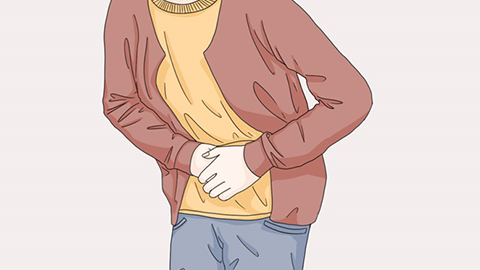What causes dark brown, clumpy blood during menstruation, and what should I do about it?
Clumps of dark brown blood during menstruation may be caused by poor menstrual flow, cold exposure, endometritis, adenomyosis, or pelvic inflammatory disease. These can be improved by promoting menstrual discharge, keeping warm, and medical treatment. If there are excessive blood clots, severe abdominal pain, or prolonged periods, prompt medical attention is necessary.
1. Poor menstrual flow: When menstrual flow is heavy, blood may not be expelled promptly and coagulates into clots, appearing as dark brown clots, commonly seen on days 2–3 of the period. It is recommended to move around moderately during menstruation, avoid prolonged sitting, and gently massage the lower abdomen to facilitate smooth menstrual discharge.
2. Cold exposure: Cold stimulation to the abdomen or consuming raw/cold foods during menstruation can cause blood stagnation and clot formation, possibly accompanied by cold pain in the lower abdomen. Keep the abdomen warm, drink warm brown sugar ginger tea, and avoid cold water and cold/raw foods.

3. Endometritis: Bacterial infection causing inflammation of the uterine lining leads to abnormal coagulation of menstrual blood, increased dark brown clots, along with mild lower abdominal pain and prolonged periods. Under a doctor’s guidance, medications such as cefixime dispersible tablets, metronidazole tablets, and Gynecological Qianjin tablets may be used to relieve symptoms.
4. Adenomyosis: Endometrial glands and stroma invade the uterine muscle layer, resulting in heavier menstrual flow, prolonged periods, and dark brown blood clots, accompanied by progressively worsening dysmenorrhea. Patients may take drospirenone-ethinyl estradiol tablets, dydrogesterone tablets, or ibuprofen sustained-release capsules under medical supervision to alleviate discomfort.
5. Pelvic inflammatory disease: Infection-induced inflammation in the pelvic region affects menstrual outflow, leading to dark brown clots, accompanied by a feeling of heaviness in the lower abdomen and soreness in the lower back. As directed by a physician, medications such as levofloxacin hydrochloride capsules, cefuroxime axetil tablets, and Fuyankang tablets may be used to improve symptoms.
During menstruation, maintain external genital hygiene and change sanitary pads frequently. Avoid strenuous exercise, consume warm, easily digestible food, eat more protein- and vitamin-rich foods, maintain regular sleep patterns, and keep emotions stable to reduce discomfort.




